- Home
- Alice Hoffman
Property Of, the Drowning Season, Fortune's Daughter, and At Risk Page 15
Property Of, the Drowning Season, Fortune's Daughter, and At Risk Read online
Page 15
“I’ve been looking all over the Avenue for you,” I said. “And now I’ve found you.”
McKay’s jacket lay on the floor, the leather covered the wooden boards. There was darkness and heat and the sound of metal as my key hit the tabletop. There was movement in the bed.
“I’ll get her out of here,” he said.
“Don’t get her out of here.”
“I’ll get her out of here.”
“No, no, don’t let me interrupt you.”
“Look, don’t start up with me.”
“Don’t start up with you?” I said. “Why didn’t you tell me that before?” I would not have listened, but still I said, “Why didn’t you tell me that at the beginning?”
I switched on the light. Kind held a sheet around her. She smiled. I smiled back. We were coy as daggers. I walked to the bed and pulled the sheet from her hands. “I paid for this,” I said.
“I want you to forget about this,” McKay said to me. “I want you to forget about this because it doesn’t mean anything.”
“And what does?” I said. My voice was sharp, my mascara was heavy as lead. I was tired from searching for McKay, and I knew there was no market for used sheets. So I sat in the chair by the window and looked into the Avenue and waited for an answer.
“Well,” I said when McKay only shrugged, “what matters, then? What the fuck matters?”
“I don’t know,” he said. “O.K.? O.K.? I fucking well do not know, all right?”
“Terrific,” I said. “Terrific.”
“I’ll tell you what matters,” Kind said.
“Shut up,” McKay said.
“The Orphans matter, that’s what matters. And I’ll tell you something else,” she said to me.
McKay threw an ashtray across the room; ashes and cigarette butts scattered on the floor. “Shut up,” he said.
Kind tossed her head like a fox, and like a fox, she was silent. I stared at her. I was not jealous. Since we had returned from the beach to the Avenue I knew McKay was often absent at Orphan meetings. When he did not return to the apartment at night, I knew he was with someone else. When the Dolphin telephoned demanding to know where his “President” was, I said I did not know. But I knew. I knew McKay was after eyes other than mine, eyes that had not seen his hands shake or his head nod. And he was after eyes other than the Dolphin’s, eyes that had not seen Kid Harris turn in the waterless creek. He was after eyes that believed in the letters of the jacket, that believed in McKay.
I was not jealous, because he was mine. No matter how many nights he spent with Kind, McKay was mine. He belonged to the Dolphin, and he belonged to me. Kind read the golden letters the way McKay wanted them to be read, but the Dolphin and I saw them as McKay did—as a lie. So I was not jealous; it was too late now. I knew too much; he knew too much. And he belonged to me. Kind’s eyes were green. She saw what I could no longer see, and she was angry.
“You’re crazy,” she said to me. “You’re fucking crazy,” she said. She sat without the sheet covering her, and, although the summer sun had shone for months, her body was white. “I’m balling your man, you hear me? He’s been cheating on you and you just sit there.”
I shrugged. What did she know? Did the difference between being dumb and being smart have anything at all to do with knowing? Me, I knew: I knew Kind had been after the title of Number One Property, I knew McKay had been cheating on me. And I knew more than that: I knew McKay was a junkie. This was not an easy thing to know.
At first when he says he’s holding the dope for someone, he is believed. I believed it, you would believe it, everyone believes it. Later when his eyes are heavy-lidded and dark it is most probably a sty or the effect of too much gin and tonic. Surely. The needle is a friend’s; the works do not belong to him, they are a talisman to ward off evil spirits or they belong to the diabetic who lives in the next apartment. He doesn’t even know how the needle got into his vein; it was a frame-up, someone implanted it there as he slept.
This was not an easy thing to know; and I knew it. After all the tracks, after pawnshops began to display in their windows the electrical appliances that were once found in our apartment, I knew McKay had a habit.
So where were my smarts? How could I know so much and be so dumb? Why didn’t I walk out the door, or strangle Kind with the arm of a leather jacket, toss the heroin out the window, and kiss McKay goodbye? Come on. Did you expect me to do any of that?
Once I knew nothing about McKay and now I knew everything about him. This seemed as good a reason as any for not walking out the door. There are so many ways to stop the knowing, and I tried them all. I tried silence, I tried heroin, I tried calling it love. And then I stopped trying to call my dumbness any one of ten thousand names.
I submitted to the direction of the mood. I gave up reasons that were worthless when contemplating air. Reasons I gave back to the dust. It was the mood, and I was in it. No matter what I knew, it was my place to be dumb. And I was.
And when Kind said “Don’t you care?”, any answer would have been a lie.
“You’re crazy,” Kind said.
“Get out,” McKay said to her.
“You promised,” Kind said. “He promised me,” she told me.
McKay walked away from the bed. He lit a cigarette and smiled.
“Number One Property,” Kind said. “You promised.”
“He’s taken to lying,” I said.
“Hey,” McKay said.
“He’s taken to implying,” I said.
“He’s the President Of,” she said. McKay laughed deeply; he exhaled. He stood naked in darkness and smoke was heavy in the air.
“Forget that shit,” he said.
“McKay,” I said. Knowing it was one thing, saying it another. “McKay,” I said.
“All right. All right,” he said.
I smiled and shook my head. “Bastard,” I said and he shrugged.
“You’re crazy. You’re both crazy,” she said.
No, we were not that; we were only conspirators. And so we smiled. Conspirators in knowledge, in silence, in love; and so we smiled.
“Fuck you,” said Kind. “Fuck you and fuck the Orphans.”
McKay winked as well as he could, but his eyes were heavy and dark. As Kind stood and began to dress, McKay sat on the bed once more. He leaned far back into the pillows and closed his eyes.
He still cared—even now. I watched Kind dress, I watched McKay, his head in the pillows, his eyes closed.
“Some President,” Kind whispered. I saw the muscles in McKay’s face tighten. He was absent from official meetings. Rumors about him had begun on the Avenue. The muscles in his face grew tighter.
“I know,” Kind said to me. Her voice was angry. She was furious that we shrugged off what she had wanted for so long. “I know why you’re not jealous,” she said. “It’s because he can’t get it up, isn’t that it? Isn’t that why you’re not jealous?”
What did she want from love with a junkie? Or did she not know about McKay and heroin? Had the wind of the Avenue not yet carried that message to her and had she been too busy imagining herself as the Number One Property to run her fingers over the tracks in his arms or to count the veins?
“Kind,” I said. McKay’s eyes were still closed and Kind stood before a mirror, tossing her head like a fox and streaking eyeliner over her lids. “Go. Just go.”
“I’m going,” Kind said. “You can believe I’m going. And you can believe everyone on the Avenue, all of the Avenue, will know what I know.” They did already, and so McKay didn’t blink an eye and I walked into the kitchen and ran the water in the sink, and touched the coldness to my face and neck. “Did you hear me?” Kind said.
I heard her. What did she expect? An argument? I would give her none; I had none to give.
“I’m telling everything I know,” I heard Kind’s voice say as she slammed shut the door of the apartment. What could she tell? What could she know?
That McKay was a junkie
, that he could no longer act the way a President should act, that he whispered in his sleep, that the Orphans no longer mattered to him, that he was a lousy lover, a liar? And that I was a fool, crazy, too dumb and in love even to be jealous? Was that what she knew and would tell? So let her know that, and let her tell that.
Too dumb and in love. I ran the cold water. It seemed the more I knew, the dumber I was. Now I knew McKay had a bad habit, I even knew which were his favorite veins. I knew what was most important: the Orphans and Honor were now dead for McKay. I knew that although heads still turned on the Avenue when McKay passed by, the Pack was not afraid of the President of the Orphans, who themselves talked about McKay at Presidentless meetings.
I knew more and more all the time. The Chevy remained parked waiting for its shine and its carburetor to be renewed, and I gave up marijuana and eye make-up and magazines so that McKay could have more money for dope. I was dumb and in love.
I walked back to McKay and sat near him. No apologies were offered; none were needed.
“I need money,” he said.
“Who doesn’t?” I said. But he hadn’t enough money to buy bullets for the .22, or enough to fill the Chevy’s gas tank. And he needed more and more dope: all the time, he needed more and more magic to close his eyes.
“The Dolphin will give you credit,” I said.
“Hah,” said McKay. “The Dolphin will give me shit.”
Flash would not deal to McKay; he was afraid of the Dolphin, afraid of his cousin Jose. And so the Dolphin now controlled two secrets: heroin and the waterless creek. It was true, he did not seem to believe in credit.
“I got to do something,” said McKay and he turned so that he lay on his stomach, so that his head was buried in pillows, so that I saw only his back.
I stroked his skin and said, “I can call Starry.”
“Flash won’t cop for me,” said McKay.
“Not about dope,” I said. “I won’t call her about dope.”
McKay turned and looked at me. “What you mean when you say what you’re saying, do you want to tell me what that’s supposed to mean?”
“I mean Starry knows how to get money,” I said, and I lit a cigarette and waited for his response.
“Jesus Christ,” he said. “Forget it. Jesus Christ, I ain’t that low.”
I had not known if he was or not. I still did not, and I wanted to know if he needed dope bad enough to consider allowing me to turn tricks.
“Is there another way?” I said. “Is there some other way to get money?”
“Yes,” said McKay. “There must be.”
“Yeah, you gonna become a bank president? Or maybe you can just race that Chevy, you only need a few hundred to fix it up. How, you tell me, how are you going to get money?”
McKay was silent. I walked to the phone, still wondering if he would really allow me to contact Starry. I dialed; he was silent.
Before Starry could answer, before McKay could respond, there was a knock at the door. I threw the receiver back into its cradle.
I answered the door: the Dolphin. “Ah,” I said, “it’s you.”
“Ah,” he answered, and his tattoos shone with sweat and color. “It’s me.”
“He’s busy,” I said. I thought McKay might be asleep; I thought he might not be asleep. I knew he did not want to see the Dolphin.
“He’s always busy lately,” said the Dolphin. I could not tell if the Dolphin looked at me through his dark sunglasses. Had that been a reference to Kind, to dope, to what? “Could it be he’s avoiding me?” the Dolphin said.
“What do I know?” I said.
“Too much,” said the Dolphin, and he walked past me into the apartment. “You know too much.”
McKay sat in bed. He had clothed himself in jeans and the leather jacket of the Orphans while I had talked in the doorway with the Dolphin.
“You giving me troubles, now,” the Dolphin said. “Now, why you want to go and give me troubles for?”
McKay shrugged. “I don’t know what you mean, brother.”
“Brother,” said the Dolphin, “you better get in line.”
“You want me in line?”
“I don’t care if you’re straight or not,” said the Dolphin. “All I want is the Avenue taken care of.”
“Who says the Avenue is yours?”
The Dolphin smiled. “You know it is,” he said.
If McKay wanted credit, this was not the way to get it. McKay shrugged. “Get off my case,” he said.
“I’ll do more than that.” The Dolphin smiled. “I’ll close your case permanently.”
“Really?” said McKay. “Really?”
I looked at McKay and frowned. He had enough trouble, why ask for more? What Starry had once said was true: there was no going against the Dolphin. He knew all. He did, why deny it? The Dolphin knew the secrets of the Avenue and which wind, north or south, carried each one.
“I don’t give a shit about your honor or your junk,” said the Dolphin. “You’re either President or you’re not. And,” the Dolphin said, as he held a pale envelope in the air, “I’ll crush you if I have to.”
McKay was silent. He turned away. “What do you want?” he said.
The Dolphin waited and then he said, “Your resignation.”
No Chevy, no Orphans, no money, no junk. I leaned against the cold plaster wall. My face was warm and I felt sick; I was silent and I watched them.
“If I say no?” said McKay.
“If you say no,” the Dolphin said. He removed his sunglasses; the butterfly’s wing circled one eye, and his gaze was pale and cold. “If you say no, then I would say your chances are no better than Cantinni’s were.”
Had he said what I thought he said? Had he implied what I thought he implied? How far would he take a lie, how far the truth, and what had he said? I stared at McKay and in the iris of his eye there was movement.
“Cantinni?” he said.
“President Of.” The Dolphin smiled. “Brother.”
“You threatening murder?”
“Political assassination.” The butterfly moved slightly, and the peacock’s feathers seemed to open and fan out beneath the Dolphin’s neck. “But then, I’m not threatening anything,” he said.
“Brother,” said McKay. “Brother.”
“Resign,” I said. “Give him the fucking jacket and resign.”
“Who is the President?” McKay asked.
“Jesus Christ, give it up,” I said.
“There was nothing?” he asked.
Even this, this one answer, the Dolphin would not give. He smiled.
“No,” McKay said. “No, I will not.”
The Dolphin shrugged. “Do what you want,” he said, and he turned to the door.
All three of us smiled at those words. Those ridiculous words. McKay laughed. “Brother,” he said.
“Brother,” answered the Dolphin.
They nodded at each other and the Dolphin walked to the door. He opened the latch, the wood moved, and then he hesitated. I could see McKay was in pain, he was hurting, he was dope sick. But he was silent, and only the beads of sweat on his forehead betrayed him.
“Why didn’t you tell me?” McKay said.
I didn’t want to hear. Yet I stood there and watched them and listened to McKay ask why he was never told there was no President of the Orphans, there was and never had been any honor. Only paintings that told no story, only the Dolphin, only a lie.
“Why didn’t you tell me?” he asked.
The Dolphin smiled once more. There was almost a gentleness between the two, now that there were no secrets, no lies. “You never asked,” the Dolphin said, and McKay nodded. He could do no more than nod.
The Dolphin left us; he shut the door. McKay smiled; he smiled into the air. He reached out for a pack of cigarettes which lay on the wooden floor and I went to him to light the match. I had to go to him to light the match, for as the Dolphin shut the door, McKay’s hands began to shake.
&n
bsp; At last, McKay had to reach out and hand the cigarette to me to kill in the ashtray I retrieved from across the room. From the place on the wooden boards where it had landed when it had been thrown. I watched him silently grasp one hand in the other, bend the fingers backward. But it was too late: his hands had begun to shake.
2
He told me to hide anything that might be dangerous: knives, the .22, forks, rubbing alcohol, the telephone. He ate Seconals and watched quiz shows on TV. The tremors in his hands were terrible to see, and so I looked away.
There was no money and no chance of any. McKay was too sick without a fix to pull a heist and the Chevy was impounded by the auto repair mechanic in the garage below us as collateral on two months’ back rent. The stereo system had already been sold to T.J. and Gina, but we decided against hocking the TV. We needed more to look at than the walls and each other and the shaking of his hands.
We also needed cigarettes and food that would satisfy McKay’s craving for sweets. I left him sitting in bed, covered by a quilt and questioning the answers of Jeopardy. I walked to Monty’s where I could still get credit. At the candy store I could charge packs of cigarettes and sodas.
I walked down the Avenue. When I reached Monty’s there was a gathering of Orphans at the doorway. I walked on by, brushing shoulders with Tosh, elbowing my way through Kind and Leona. I avoided their eyes and was silent.
Inside the candy store the air was dark and cool, laced with the odor of malt and tobacco. I sat at the counter and rested my purse full of razor blades and steak knives on the linoleum. Afraid of outgoing calls to the city, to a connection, I had hidden the phone in a dresser drawer, the rubbing alcohol in the vegetable bin of the refrigerator, and I carried with me anything else that might be dangerous to McKay.
“Credit?” I said to Monty. When he nodded I ordered a soda, several packs of cigarettes, a half dozen Mr. Goodbars, and cans of Coke. I wanted to leave the store right away and get back to McKay, but I did not want to pass the Orphans again. So I sipped a vanilla Coke and smoked several cigarettes.
I watched Tosh, Leona, Kind, the Marine, and the rest through the plate-glass window, waiting for them to leave. Monty leaned his elbows on the countertop. “What do you know?” I said distractedly, my eye on the Orphans.

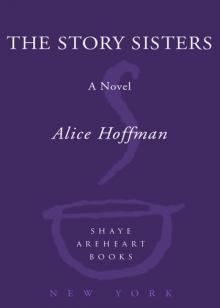 The Story Sisters
The Story Sisters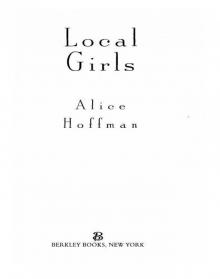 Local Girls
Local Girls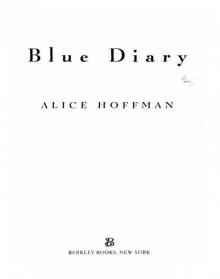 Blue Diary
Blue Diary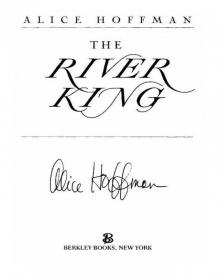 The River King
The River King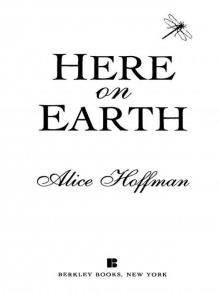 Here on Earth
Here on Earth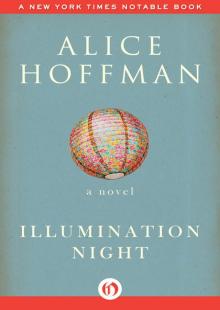 Illumination Night: A Novel
Illumination Night: A Novel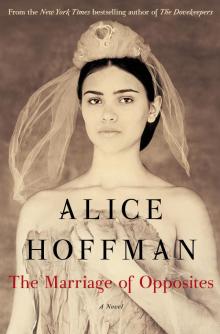 The Marriage of Opposites
The Marriage of Opposites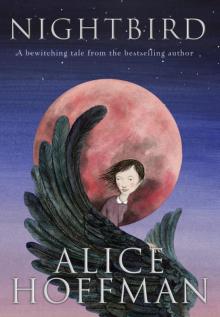 Nightbird
Nightbird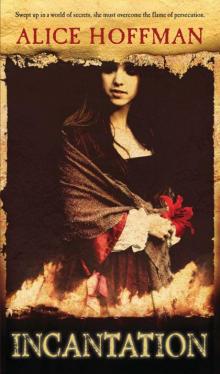 Incantation
Incantation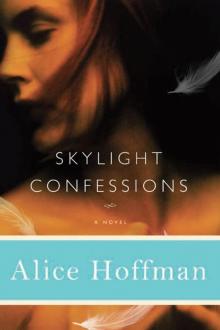 Skylight Confessions
Skylight Confessions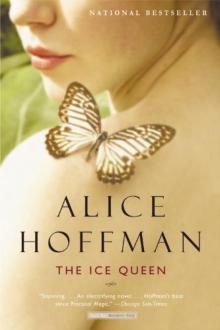 The Ice Queen
The Ice Queen Second Nature
Second Nature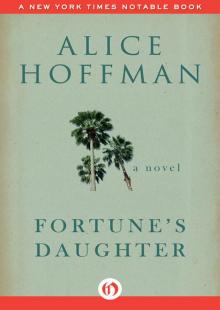 Fortune's Daughter: A Novel
Fortune's Daughter: A Novel Seventh Heaven
Seventh Heaven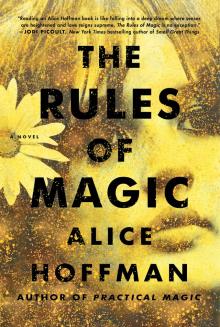 The Rules of Magic
The Rules of Magic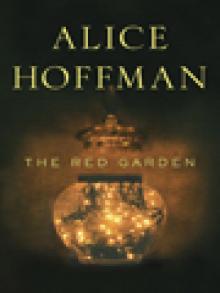 The Red Garden
The Red Garden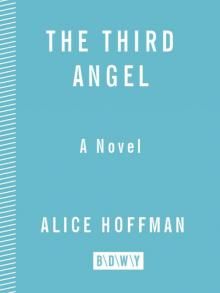 The Third Angel
The Third Angel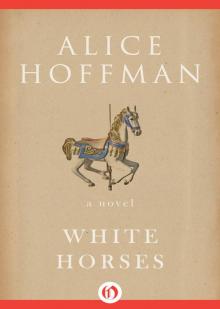 White Horses
White Horses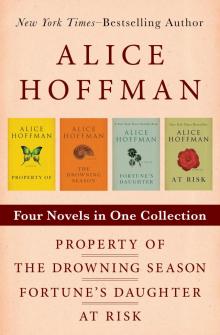 Property of / the Drowning Season / Fortune's Daughter / at Risk
Property of / the Drowning Season / Fortune's Daughter / at Risk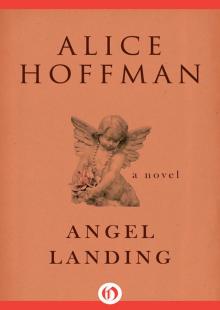 Angel Landing
Angel Landing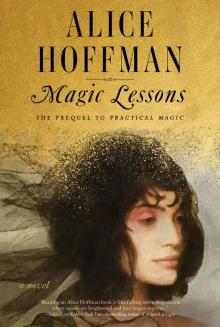 Magic Lessons
Magic Lessons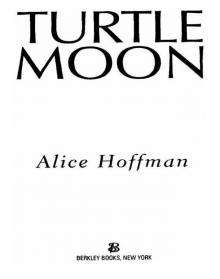 Turtle Moon
Turtle Moon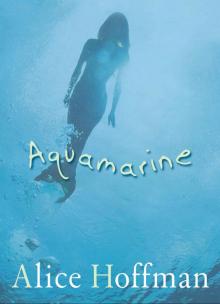 Aquamarine
Aquamarine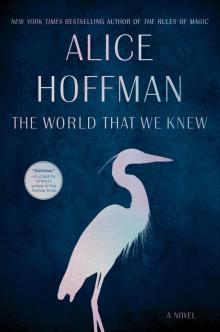 The World That We Knew
The World That We Knew Faithful
Faithful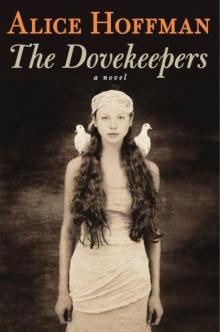 The Dovekeepers
The Dovekeepers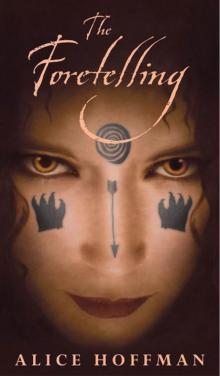 The Foretelling
The Foretelling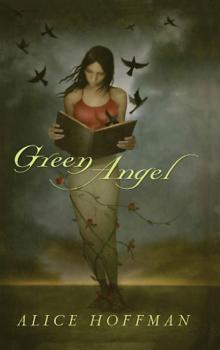 Green Angel
Green Angel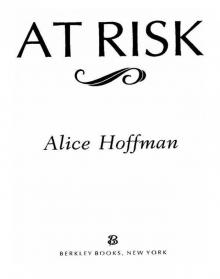 At Risk
At Risk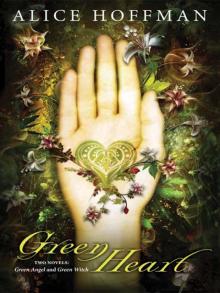 Green Heart
Green Heart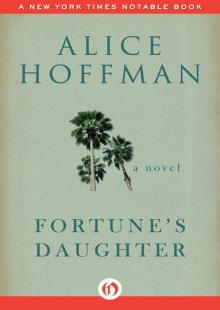 Fortune's Daughter
Fortune's Daughter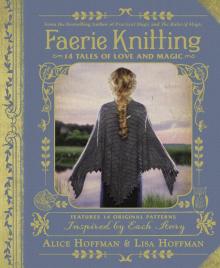 Faerie Knitting
Faerie Knitting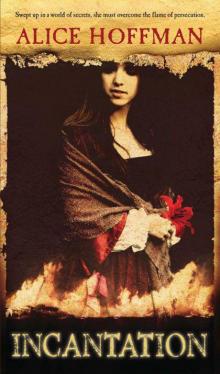 Incantation (v5)
Incantation (v5)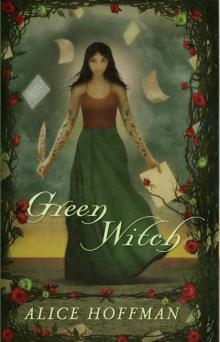 Green Witch
Green Witch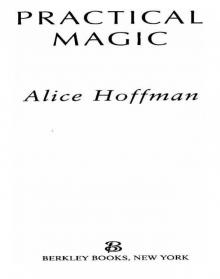 Practical Magic
Practical Magic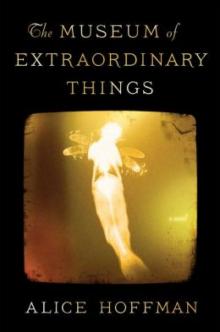 The Museum of Extraordinary Things
The Museum of Extraordinary Things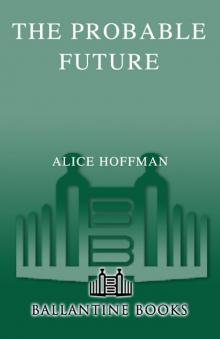 The Probable Future
The Probable Future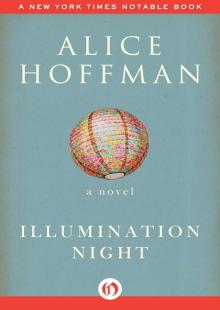 Illumination Night
Illumination Night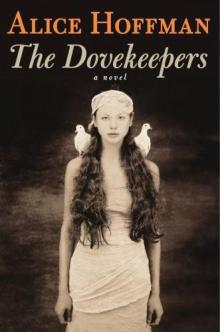 The Dovekeepers: A Novel
The Dovekeepers: A Novel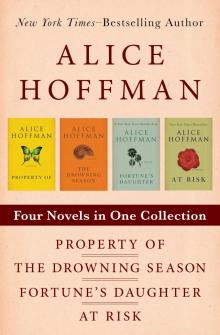 Property Of, the Drowning Season, Fortune's Daughter, and At Risk
Property Of, the Drowning Season, Fortune's Daughter, and At Risk